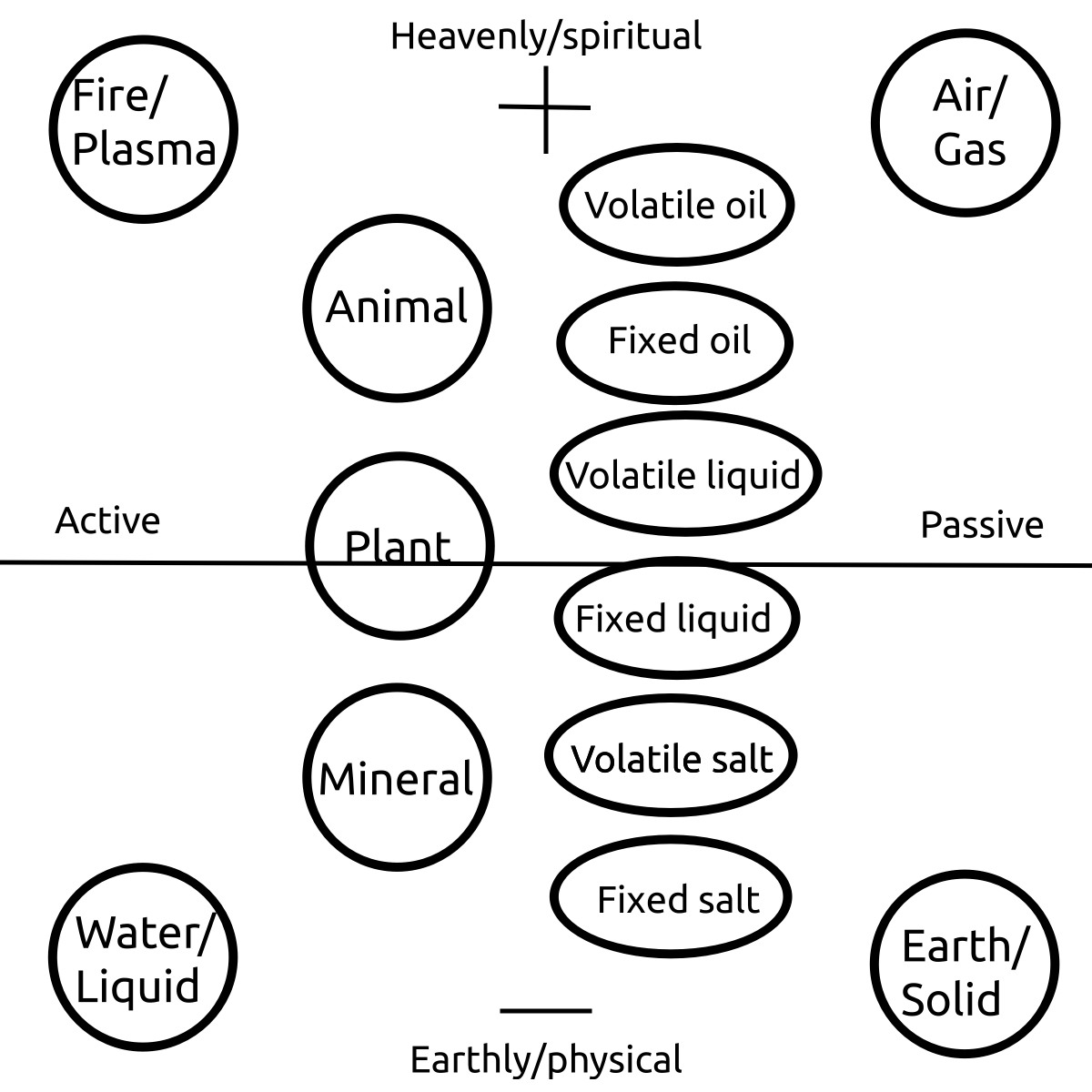Alchemy

Alchemy is to study the body and spirit of God as astrology is to study Gods mind. It is the origin of modern science, it could be thought of as science when men were faithful and more in harmony with nature.
To understand nature, the elements, the cycles of nature and its processes is alchemy. How are animals born and grown? How do plants grow and reproduce? How do minerals and crystals grow? How does the sky and sun effect things?
How does cold and heat work? Moisture and dryness? Electromagnetism?
The study of alchemy allows you to understand the natural world, to control it, refine it, grow it, and work with it. One of God's arts is alchemy, when man learns it they become closer to God and nature.
Major parts
Alchemically, the world is divided into four major parts. Traditionally three. Minerals the lowest, plants, animals and spiritual phenomena(sky and above). These are all made up of the four elements, earth, water, air and fire.
From these three/four things we can obtain three or six major reagents. Salts, oils(sulfur) and liquids(mercury). All can either be volatile or fixed meaning able to dissipate in the air or be dissolved by air. Fixed is to stay relatively preserved and stable like regular water compared to volatile alcohol.
Fixed salts are ashes, oxides and earthly materials. Volatile or spiritual salts are hydroxides, nitrates I believe as well and some other refined chemical salts that dissolve in air to a liquid and dissipate. Alkaloids might fall under this category, I'm not sure.
Fixed oils are resins, fats, lards, waxes, essences and all thickened gums of things. Volatile oils are essential oils of things, those that contain the smell of something.
Fixed liquids are fluids, juices and waters of things. Volatile liquids are spirits, ammonia, alcohols, liquid acids, usually mineral acids.
Extraction
The most fundamental way to extract and refine substances is through dry distillation or sublimation. In this process you have two major chambers or flasks, one that is fired/hot and one that is cooled. These are connected via pathways or tubes.
Usually alembics or retorts and flasks are used. Metal distillers need to be used for more aggressive operations.
The raw or base material is put in the first chamber which is fired. It is burnt as much as possible and the base material will smoke. First this smoke mostly contains waters, volatile or fixed, then it will contain pyrolitic oils.
Once no more smoke arises from the base material, you have separated the volatile from the fixed, spiritual from the physical.
You will be left with two major parts. In the original flask, a black matter which is salts and carbon that can be burnt off in open air. In the other, red oils at the bottom and liquids usually at the top, white or clear. The liquids and oils can be redistilled to separate and refine.
These three are your three major reagents. They will be fixed or volatile depending on the substance and process used.